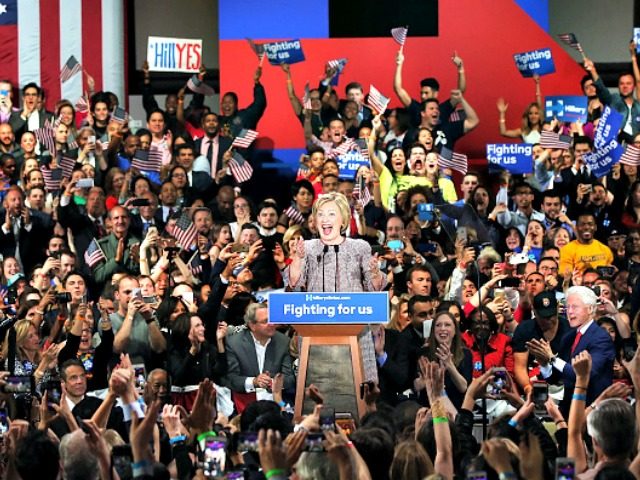Progressives need to recognize that their alliance with the privileged wealthy and the desperate poor is squeezing America’s middle-class and poisoning America’s politics, admits the author at the very establishment, fashion-focused monthly, Vanity Fair.
T.A. Frank shows that the Democratic Party likely will increasingly serve the very wealthy while distracting poor people and liberal political activists with a circus of vanity-boosting theater, such as “immigration rights” or forcing schools to accept a tiny number of “transgender” youths into schools’ single-sex bathrooms and locker rooms.
In an act of heresy, Frank even says that Donald Trump is changing the GOP to aid working-class Americans. But Frank saves himself from the progressive’s inquisition by praising the doomed effort by Sen. Bernie Sanders to shift the Democratic Party back towards middle-class Americans.
“In a world of Trumpism and Clintonism, there’s only one place for globalist-minded elites to go,” Frank writes.
Will rich people suffer if [Trump] is elected president? Well, yes. Yes, they will. Because we all will. But that’s a pat answer, because Trump and Trumpism are different things. Trump is an erratic candidate who brings chaos to everything. Trumpism, on the other hand, is the doctrine of a different Republican Party, one that would cater not to the donor class, but rather to the white working class. Rich people do not like that idea…
In a world of Trumpism and Clintonism, Democrats would become the party of globalist-minded elites, both economic and cultural, while Republicans would become the party of the working class. Democrats would win backing from those who support expanded trade and immigration, while Republicans would win the support of those who prefer less of both. Erstwhile neocons would go over to Democrats (as they are already promising to do), while doves and isolationists would stick with Republicans. Democrats would remain culturally liberal, while Republicans would remain culturally conservative.
The combination of super-rich Democrats and poor Democrats would exacerbate internal party tensions, but the party would probably resort to forms of appeasement that are already in use. To their rich constituents, Democrats offer more trade, more immigration, and general globalism. To their non-rich constituents, they offer the promise of social justice, which critics might call identity politics. That’s one reason why Democrats have devoted so much attention to issues such as transgender rights, sexual assault on campus, racial disparities in criminal justice, and immigration reform. The causes may be worthy—and they attract sincere advocates—but politically they’re also useful. They don’t bother rich people.
It’s a costly arrangement. The more that Democrats write off the white working class, which has been experiencing a drastic decline in living standards, the harder it is for them to call themselves a party of the little guy. The more that the rich can frame various business practices as blows to privilege or oppression—predatory lending as a way to expand minority home ownership, outsourcing as a way to uplift the world’s poor, etc.—the more they get a pass from Democrats on practices that hurt poorer Americans. Worst of all, the more that interest groups within the Democratic Party quarrel among themselves, the more they rely upon loathing of a common enemy, Republicans, in order to stay united.
Things get darker still, for, if the G.O.P. becomes ever whiter, failing to peel away working-class voters of other races, then partisan conflict could look more and more like racial conflict. That is the nightmare. Our politics are bad enough when voters are mobilized mainly by culture-war issues, such as abortion, because compromise is often impossible. But when voters are mobilized by issues of identity, something most people can’t change, then nothing works. It’s just war.
Seen in this light, Bernie Sanders suddenly looks quite different from his counterpart, and quite shrewder a politician than many give him credit for. One effect of focusing on economic conflict, as Sanders has done, is that it helps reduce other types of conflict. With his calls for breaking up Wall Street banks and helping young people with tuition, Sanders is uniting people across lines of identity by directing them to a cause that has nothing directly to do with identity…
Read it all here in Vanity Fair.

COMMENTS
Please let us know if you're having issues with commenting.